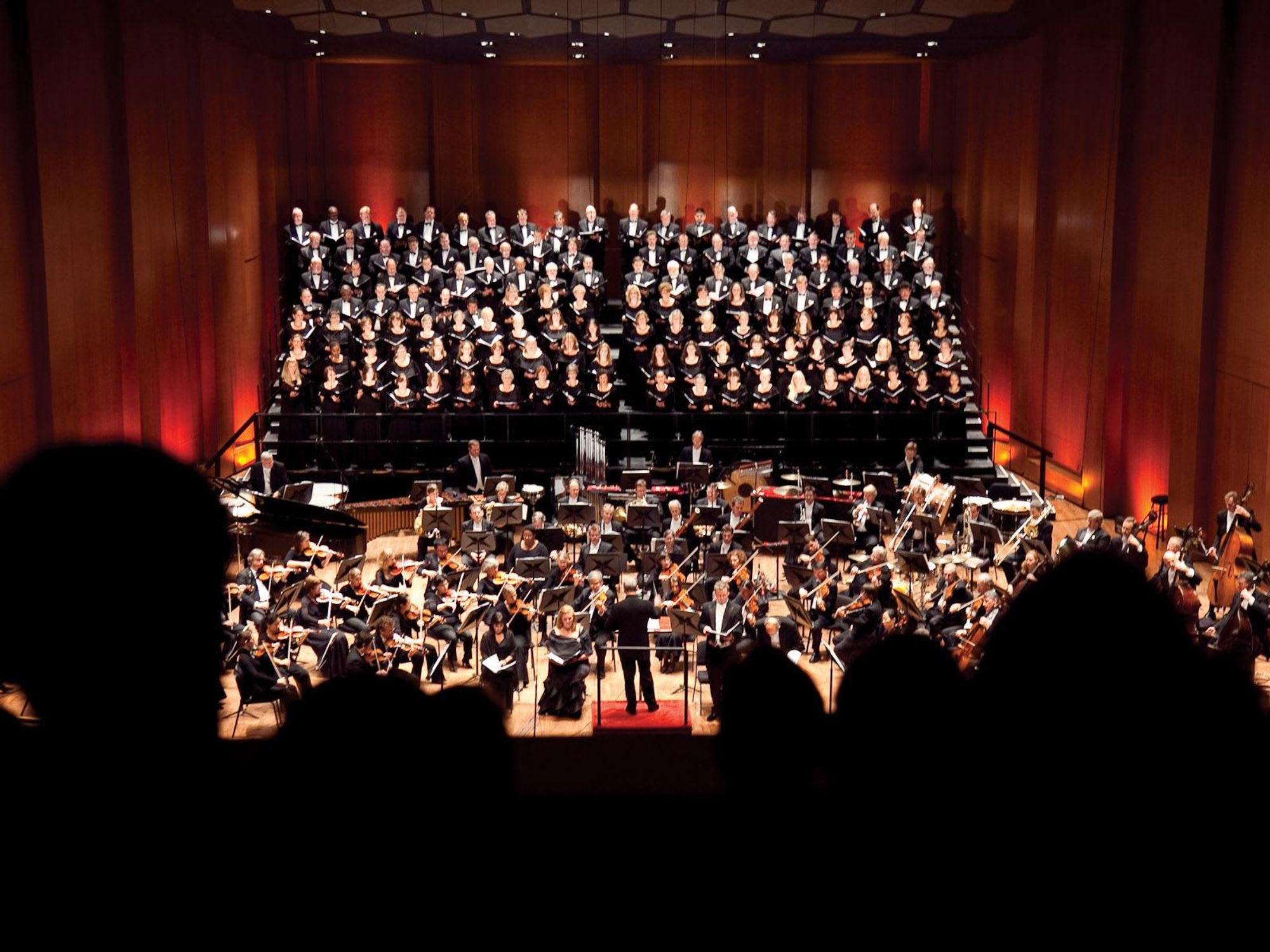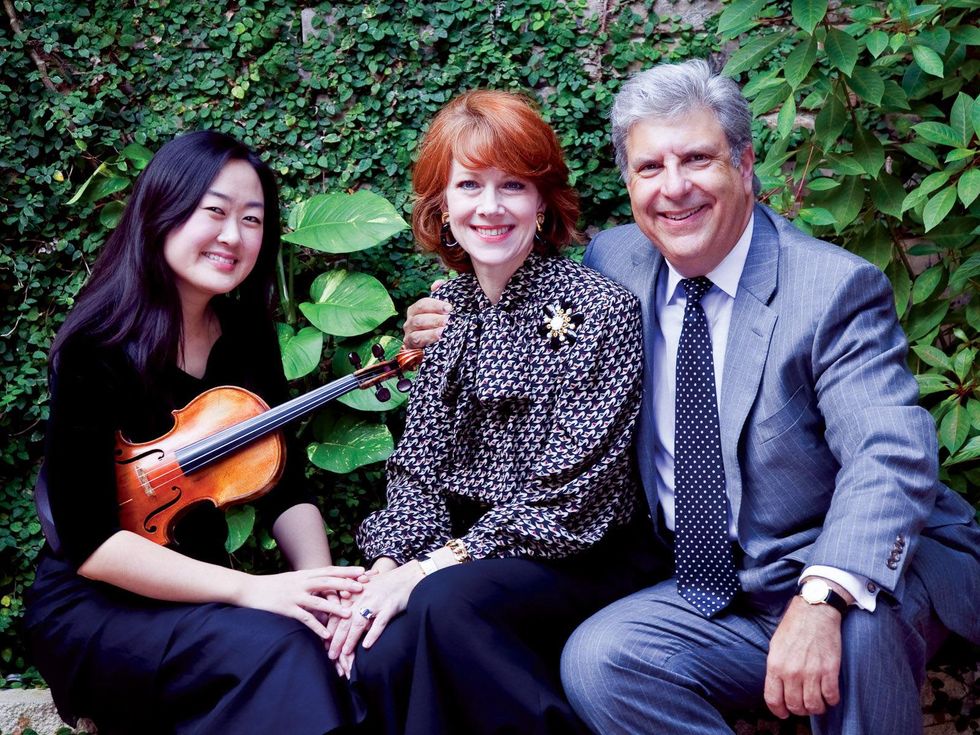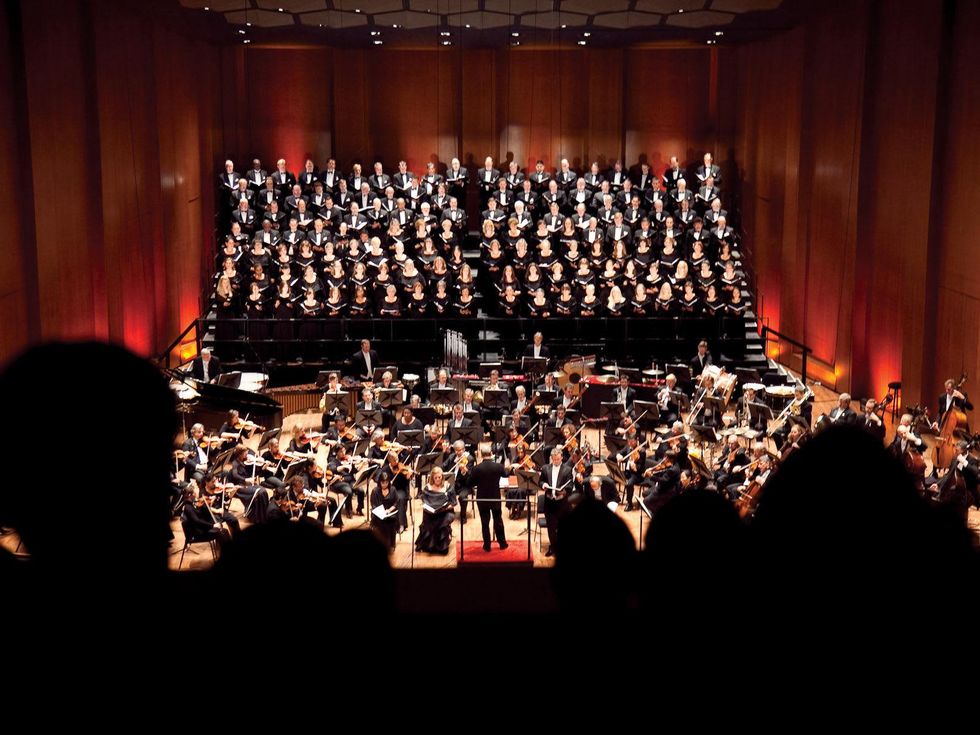Blog it out
Houston symphonists pick their favorite tunes, from Strauss to Stevie Wonder. What's yours?

If you find yourself feeling elated, joyous and full of belief in the redemptive qualities of mankind, you're probably listening to Beethoven’s Ode to Joy chorus. If the wandering melody of John Williams’ Schindler’s List theme doesn’t bring you to tears or rip your heart out, you probably didn’t have one in the first place. And if the last movement of Shostakovich’s Symphony No. 11 doesn’t terrify you with a sense of impending doom, you've probably watched one too many cheap horror films.
Although we tend to think of conventional language, written and oral, as precise and linear, it's anything but. A slight change in inflection morphs “hello” from a friendly greeting into, “are you out of your mind,” “where have you been?” or, ironically, "get away from me.”
It’s almost impossible to talk about any art discipline without getting into the language question. Does music communicate? If so, what does it say to you?
There are different schools of thought on the music-language comparison, but largely, most can agree on something: Music has the ability to make you feel.
Richard Strauss' epic horn opening of Ein Heldenleben (A Hero’s Life) could make you believe you can fly. Idina Menzel’s voice soars and defies gravity. John Adams' Short Ride in a Fast Machine may even give you butterflies. Add some awe-inspiring photography, and you have a multi-sensory experience that transports you to another world, if you're willing.
Dvorak’s Slavonic Dances' earthy rhythms are quite different than Tiempo Libre’s, but both will make you groove to the beat. When emotions take hold of you physically, you can’t help move. And you should.
“I am completely moved by Mozart, Beethoven, Brahms, Mahler and Richard Strauss," Kiju Joh, Houston Symphony violinist, explains. “When I can feel every single emotion possible within a single work, all I can do is sigh in awe that such profound and beautiful music could even exist and have been produced by mankind.”
“When I'm not playing or listening to classical music, I'm usually listening to classic rock,” Joh says. “It makes me want to pick up my imaginary microphone and belt out songs with my fantasy rock band (in the privacy of my own home, or car).”
Vivaldi’s "Spring" from The Four Seasons, Le Quattro Stagioni (because everything sounds just a bit better in Italian), may cause you to skip and frolic. Baroque composers, after all, believed in music affecting and arousing emotion, and the era’s music, and all its art for that matter, mastered many ways to up the drama — not unlike today's soap operas, but with refinement.
“Next season, we will be performing Elgar's Enigma Variations,” Adam Dinitz, Houston Symphony’s English horn player, says. “This is a piece that always gets a reaction from me. Elgar wrote each of the many movements as caricatures of his friends (and one of his dog)! It is easy to get a feel for the type of person Elgar was portraying, and it always makes me think of friends of mine that would fit in to his description.”
Elgar’s work offers listeners an opportunity to explore how the same notes can be manipulated to mean and communicate different things. They explore the full range of emotions — from picking you up, to chilling you out.
“Two pieces of music calm me down,” Dinitz explains. “The first is the second movement of Beethoven Symphony No. 7. It is some of the most beautiful music ever written, and I think it is impossible for anyone to be angry while listening to that. The second is Stevie Wonder's ‘Too High.’ For some reason, I just always have to smile when I listen to it.”
What tunes, songs, melodies or pieces get a reaction out of you? Do you have some that make you happy? Others that make you cry? Do you have one go-to that always calms you down?
Share your thoughts on the Houston Symphony blog.

